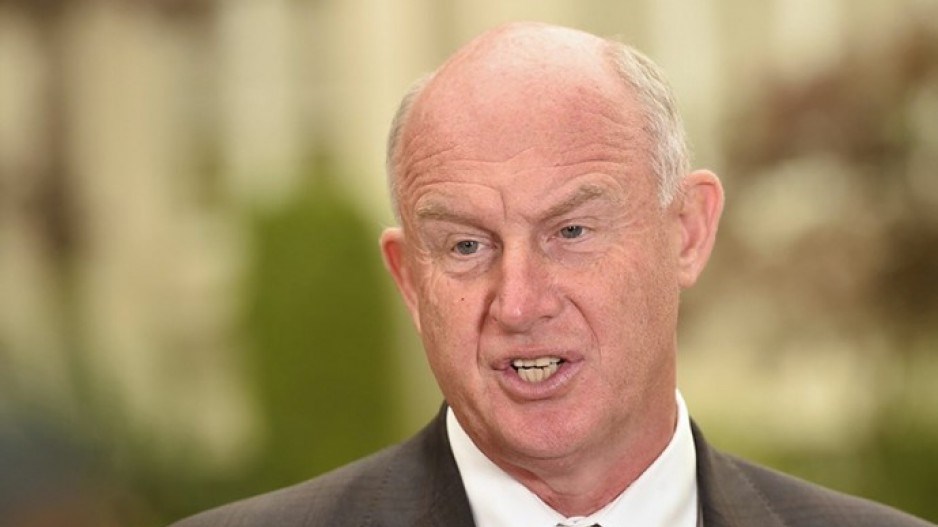The B.C. government has filed its first unexplained wealth order that, if approved by a judge, will legally compel two Salt Spring Island homeowners to explain the origins of the $1 million they used to buy their home.
The order will be accompanied by several other orders this week and be the first such court proceeding in Canada, according to Minister of Public Safety and Solicitor General Mike Farnworth.
An unexplained wealth order is a court order that compels the target to reveal to authorities the source of funds derived to obtain a particular asset, typically a luxury vehicle or property.
Farnworth cited one case so far that is subject to such an order.
The case concerns Alicia Valerie Davenport a.k.a. Alicia Lee and Geordie Lee a.k.a. Skye Lee (Lee), spouses who are the registered owners of 435 Stewart Rd. on Salt Spring Island, according to the Director of Civil Forfeiture’s claim against them filed on Aug. 25.
The director alleges the home, which appears online as operating as a guest house off a quiet country road, was bought with proceeds of a major U.S. criminal securities fraud scheme partly orchestrated from Vancouver.
The director claims Davenport bought the home for $1 million cash on Nov. 3, 2017 and listed her occupation as “home maker.”
The director says Davenport and Lee were beneficial owners of company shares traded in the criminal plot and they otherwise had no lawful income to support the purchase of the home, which is now listed for sale for $1.8 million.
As such, the property is proceeds of unlawful activity and/or tax evasion and “the property has been used by the defendants to engage in unlawful activities which variously resulted in, or were likely to result in, the acquisition of property or an interest in property, or caused, or were likely to cause serious bodily harm,” the director claims.
Some or all of the funds were allegedly derived from an illegal stock trading scheme orchestrated by Roger Knox and Richard Targett-Adams, who operated a Swiss asset management firm and trading platform called Silverton SA or Wintercap SA.
The Swiss firm was part of a layer of offshore shell companies that hid the beneficial owners of shares that were traded illegally via a pump-and-dump arrangement.
“As part of the unlawful scheme, R. Knox controlled various corporations with WB21 accounts, including: Hilton Capital Inc., Morris Capital Inc., Quezon Group LLC, Laramee Holdings Ltd., Santos Torrest LLC and Egredior Holding Ltd.”
Proceeds of the scheme were allegedly transferred from WB21 to Davenport, the claim states, adding $1.15 million was wired from Hilton to Biancardi Law Corp. for a loan to Lee.
This is the second forfeiture proceeding by the director against the couple. In 2019, the director filed a claim against Davenport, Lee and Beresford Estates Inc. and later Vincent Manalastas and Jay Lee for their other Salt Spring Island property at 391 Baker Rd. In similar fashion, the claim alleges fraudulent stock proceeds were used to extensively renovate the home thanks to seven wire transfers (totalling $746,806) from the shell companies to Burrard Green City Builders.
All parties in that claim have filed responses, denying any wrongdoing and asking the court to toss the case on grounds there is no evidence.
Furthermore, Davenport “pleads that in this particular instance, the Director has commenced an action on his own initiative and without a preceding bona fide police investigation, and has thus engaged in an abuse of process,” noted Vancouver securities lawyer Patrick Sullivan in response.
Responses have yet to be filed in the latest claim, involving the unexplained wealth order.
In 2019, Targett-Adams pleaded guilty to securities fraud, conspiracy to commit securities fraud and money laundering. In 2020, Knox pleaded guilty to securities fraud, and conspiracy to commit securities fraud.
On Oct. 13, Knox was sentenced to 36 months in a federal prison for his role in the fraud that generated over US$150 million in illicit proceeds to the benefit of many hidden beneficiaries but the detriment of regular investors, according to the U.S. Attorney’s Office. Knox recently testified in a civil case brought by the U.S. Securities and Exchange Commission against eight B.C. defendants involved with West Vancouver lawyer Fred Sharp, who faces a tax evasion probe by the Canada Revenue Agency and criminal fraud charges in the U.S.
Civil forfeiture claims are controversial as they do not require a criminal conviction to have the state seize assets. Likewise, unexplained wealth orders are perceived by civil libertarians and criminal defence lawyers as excessive state power.
Farnworth said such orders are needed to combat money laundering (in a jurisdiction that has recently failed to prosecute such allegations in court).
“As part of our Safer Communities Action Plan, we passed legislation to add a powerful tool under the Civil Forfeiture Act in the form of unexplained wealth orders,” wrote Farnworth in a statement.
“It is under this legislation that we will pursue ill-gotten gains more efficiently, including complex money-laundering cases, compelling people to explain how they acquired their wealth in cases where there are suspicions that it was generated from criminal activity.”




